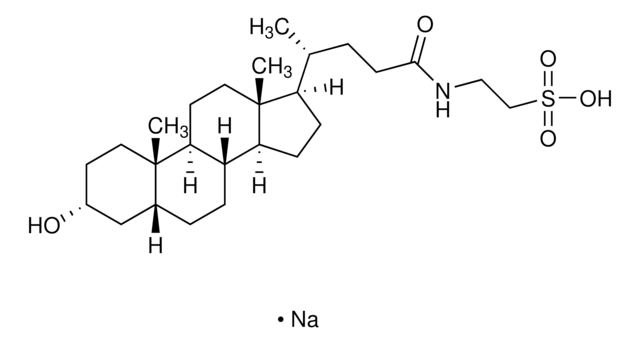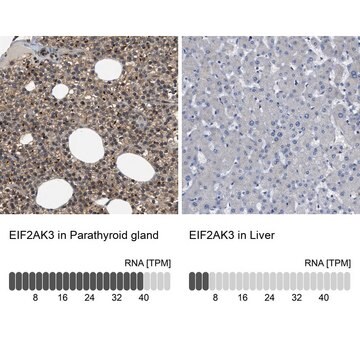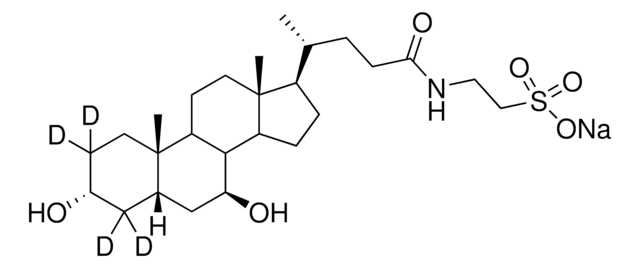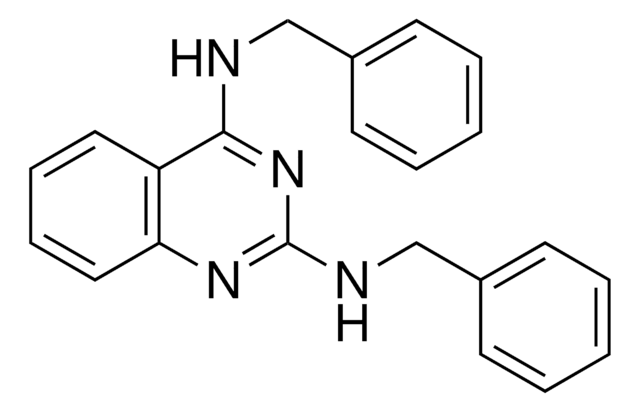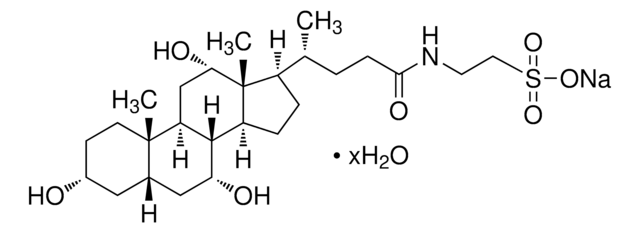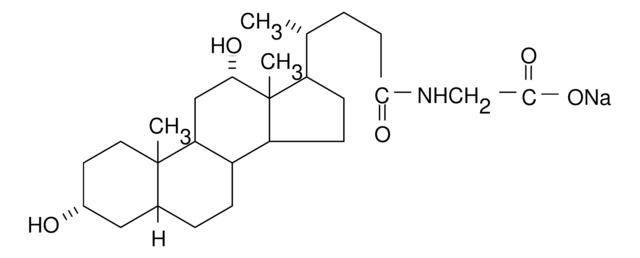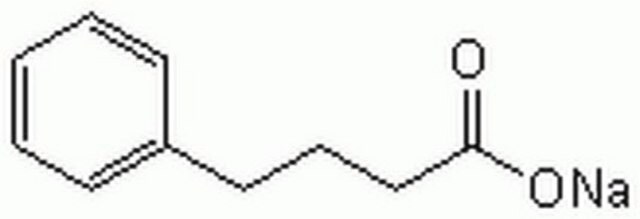T0266
Sodium tauroursodeoxycholate
Synonym(s):
3α,7β-Dihydroxy-5β-cholan-24-oic acid N-(2-sulfoethyl)amide, Tauroursodeoxycholic acid sodium salt
About This Item
description
anionic
Quality Level
Assay
≥95.0% (TLC)
mol wt
521.69 g/mol
CMC
4
HLB
20.1
SMILES string
[H][C@@]12[C@]([C@](CC[C@@H](O)C3)(C)[C@]3([H])C[C@@H]2O)([H])CC[C@@]4(C)[C@@]1([H])CC[C@]4([H])[C@]([H])(C)CCC(NCCS(=O)([O-])=O)=O.[Na+]
InChI
1S/C26H45NO6S/c1-16(4-7-23(30)27-12-13-34(31,32)33)19-5-6-20-24-21(9-11-26(19,20)3)25(2)10-8-18(28)14-17(25)15-22(24)29/h16-22,24,28-29H,4-15H2,1-3H3,(H,27,30)(H,31,32,33)/t16-,17+,18-,19-,20+,21+,22+,24+,25+,26-/m1/s1
InChI key
BHTRKEVKTKCXOH-LBSADWJPSA-N
Related Categories
General description
Application
Storage Class Code
11 - Combustible Solids
WGK
WGK 2
Personal Protective Equipment
Certificates of Analysis (COA)
Search for Certificates of Analysis (COA) by entering the products Lot/Batch Number. Lot and Batch Numbers can be found on a product’s label following the words ‘Lot’ or ‘Batch’.
Already Own This Product?
Find documentation for the products that you have recently purchased in the Document Library.
Customers Also Viewed
Articles
Isobaric separation of bile acids and conjugates by LC-MS/MS on Ascentis® Express C18 column with excellent resolution and linearity.
Protocols
This method is particularly useful in research into the role of individual bile acids as signaling molecules; suitable for clinical laboratories to investigate potential mechanisms linked to gut hormone profiles and glycemic control.
Related Content
Bile Acids (BA) are synthesized in the liver and play important roles in cholesterol homeostasis, absorption of vitamins and lipids, and various key metabolic processes.
Our team of scientists has experience in all areas of research including Life Science, Material Science, Chemical Synthesis, Chromatography, Analytical and many others.
Contact Technical Service
